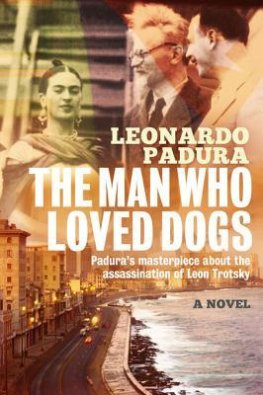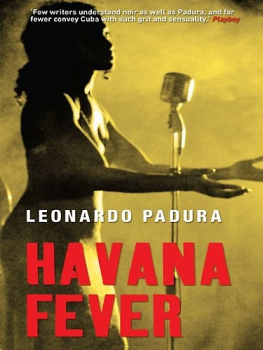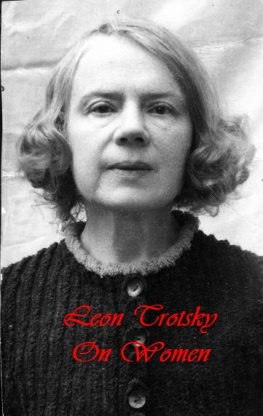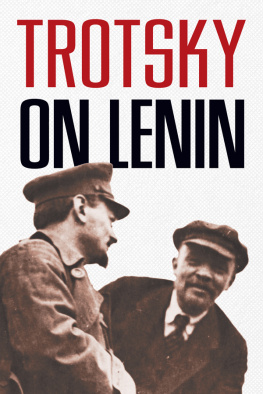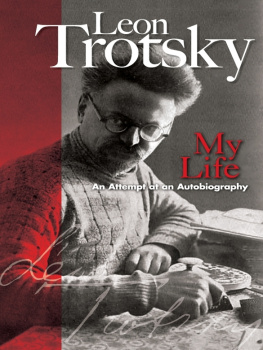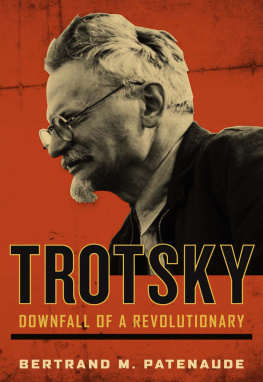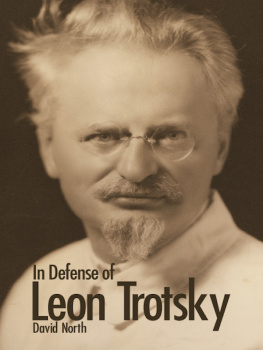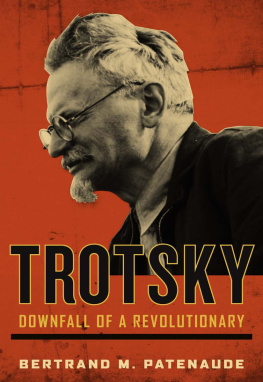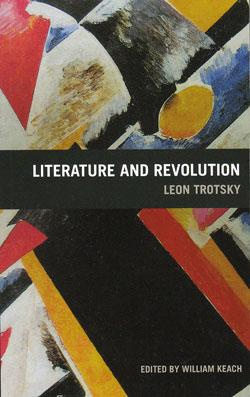Leonardo Padura
The Man Who Loved Dogs
Thirty years later, still, for Luca
This happened when only the dead were smiling
Glad to have found their resting place at last. .
ANNA AKHMATOVA, Requiem
Life. . is wider than history.
GREGORIO MARAON, Tiberio: Historia de un resentimiento
London, August 22, 1940 (TASS) London radio has today announced: In a Mexico City hospital, Leon Trotsky died as a result of a fractured skull sustained in an attack perpetrated the previous day by a person in his innermost circle.
LEANDRO SNCHEZ SALAZAR: Wasnt he suspicious?
DETAINEE: No.
L.S.S.: Didnt you think that he was a defenseless old man and that you were acting with cowardice?
D: I wasnt thinking anything.
L.S.S.: You were walking over from where he fed the rabbits, what were you talking about?
D: I dont remember if I was talking or not.
L.S.S.: He didnt see when you took out the ice axe?
D: No.
L.S.S.: Immediately after you stabbed him, what did the gentleman do?
D: He jumped as if he had gone mad, he screamed like a madman, the sound of that scream is something I will remember for the rest of my life.
L.S.S.: Tell me what he did, lets see.
D: A. . a. . a. . ah. .! But he was very loud.
(From Mexico Citys chief of secret police Colonel Leandro Snchez Salazars interrogation of Jacques Mornard Vandendreschs, or Frank Jacson, the presumed killer of Leon Trotsky, the night of Friday, August 23, and the early hours of Saturday, August 24, 1940.)
Rest in peace were the pastors last words.
If that well-worn phrase, so shamelessly dramatic in the mouth of that figure, had ever held any meaning, it was at that exact moment, as the grave diggers nonchalantly lowered Anas coffin into the open grave. The certainty that life can be the worst hell, and that the remains of fear and pain were disappearing forever with that descent, overcame me with paltry relief. I wondered if I wasnt in some way envious of my wifes final passage toward silence, since being dead, totally and truly dead, for some can be the closest thing to a blessing from that God with whom Ana tried to involve me, without much success, in the last years of her difficult life.
As soon as the grave diggers finished moving over the stone and placed the wreaths of flowers our friends had brought on the grave, I turned and walked away, resolved to escape the hands patting my shoulder and the habitual expressions of condolence that we always feel obliged to offer. Because at that moment every other word in the world is superfluous: only the pastors well-worn formula had meaning and I didnt want to lose it. Rest and peace: what Ana had finally attained and what I also asked for.
When I sat down inside the Pontiac to await Daniels arrival, I knew that I was about to pass out, and I was sure that if my friend didnt remove me from the cemetery, I would have been unable to find the way back to my life. The September sun was burning the top of the car, but I didnt feel up to moving to any other place. With what little strength I had left, I closed my eyes to control the vertigo of loss and fatigue while I felt the acidic sweat running down over my eyelids and cheeks, springing from my armpits, neck, arms. It was soaking my back scorched by the vinyl seat until it turned into a warm current that flowed down my legs in search of the cistern of my shoes. I wondered if that foul sweat and my deep exhaustion were not the prelude to my molecular disintegration, or at least the heart attack that would kill me in the next few minutes. It seemed to me that either could be an easy, even desirable solution, although frankly unfair: I didnt have the right to force my friends to bear two funerals in three days.
Are you ill, Ivn? Danys question, through the window, surprised me. Holy shit, look at how much youre sweating. .
I want to leave. . But I dont know how, dammit. .
Were leaving, my friend, dont worry. Wait a minute, let me give a few pesos to the grave diggers, he said, my friends words transmitting a patent sense of life and reality that seemed strange to me, decidedly remote.
Once again I closed my eyes and remained motionless, sweating, until the car was set in motion. Only once the air coming through the window began to calm me down did I dare to raise my eyelids. Before leaving the cemetery, I was able to see the last row of tombs and mausoleums, eaten away by the sun, weather, and oblivion, as dead as their inhabitants, and with or without any reason for doing so at that moment I again asked myself why, amid so many possibilities, some faraway scientists had chosen my name specifically to baptize the ninth tropical storm of that season.
Although at this point in my life Ive learned or rather have been taught, and not in a very nice way not to believe in chance, the coincidences were too many that led the meteorologists to decide, many months ahead of time, that they would call that storm Ivana masculine name starting with the ninth letter of the alphabet, in Spanish, that had never been used before for that purpose. The fetus of what would become Ivan was spawned by the meeting of ominous clouds in the vicinity of Cape Verde, but it wasnt until a few days later, already baptized and converted into a hurricane with all of its properties, that it would rear its head in the Caribbean to place us in its ravenous sight. . Youll see why I think that I have reasons enough to believe that only twisted fate could have determined that that particular cyclone, one of historys fiercest, would carry my name, just when another hurricane was closing in on my existence.
Even though it had been quite a long time perhaps too long since Ana and I had known that her end was decreed, the many years during which we dragged her illnesses had accustomed us to living with them. But the news that her osteoporosis probably caused by the vitamin-deficient polyneuritis unleashed in the most difficult years of the crisis in the 1990s had developed into bone cancer, had made us face the evidence of an end that was near, and given me the macabre proof that only a perverse fate could be responsible for burdening my wife specifically with that illness.
From the beginning of the year, Anas decline had accelerated, although it was in the middle of July, three months after the definitive diagnosis, that her final agony began. Although Gisela, Anas sister, came frequently to help me, I practically had to stop working to take care of my wife; and if we survived those months, it was thanks to the support of friends like Dany, Anselmo, or Frank the doctor, who frequently came through our small apartment in the neighborhood of Lawton to drop off some supplies drawn from the wretched harvests that, for their own subsistence, they managed to obtain in the most devious ways. More than once, Dany offered to come help me with Ana, but I rejected his overtures, since pain and misery are among the few things that, when shared, always multiply.
The scene we lived between the cracked walls of our apartment was as depressing as can be imagined, although the worst thing, under the circumstances, was the strange power with which Anas broken body clung to life, even against its owners will.
In the early days of September, when Hurricane Ivan, having reached its full potential, had just crossed the Atlantic and was nearing the island of Grenada, Ana had an unexpected period of lucidity and an unforeseen relief to her pain. As it had been her decision not to go to the hospital, a neighboring nurse and our friend Frank had taken over the task of providing her with intravenous fluids and the dose of morphine that kept her in a startling lethargy. Upon seeing that reaction, Frank warned me that this was the denouement and recommended that I give the patient only those foods that she asked for, not insisting on the intravenous fluids and, as long as she wasnt complaining of pain, stopping all drugs to thus give her some final days of intelligence. Then, as if her life had returned to normal, an Ana with various broken bones and very open eyes became interested again in the world around her. With the television and radio on, she fixed her attention in an obsessive way on the path of the hurricane that had initiated its deathly dance devastating the island of Grenada, where it had left more than twenty dead. On many occasions throughout those days, my wife lectured me on the hurricanes characteristics, one of the strongest in meteorological history, and attributed its elevated powers to the climate change the planet was undergoing, a mutation of nature that could do away with the human species if the necessary measures were not taken, she told me, completely convinced. That my dying wife was thinking of everyone elses future only added to the pain I was already suffering.

